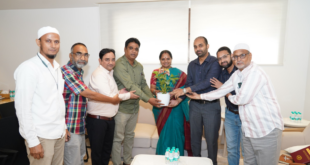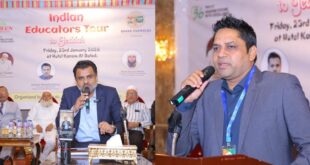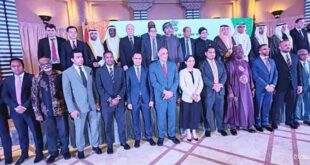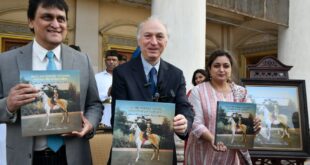by: Dr Tajammul Hussain
India’s cultural and political complexities, particularly regarding the Hindutva ideology and its impact on Indian Muslims, are important and worthy of deeper examination. India is a diverse and multifaceted country with a long history of coexistence, but it also faces significant challenges today, especially related to religious, caste-based, and regional divisions. Proposal for a research-based project to address these issues, particularly from an Islamic perspective, can contribute to fostering greater understanding and developing strategies for promoting social harmony and protecting the rights of minorities.
Understanding Hindutva and Its Impact
Hindutva is an ideology associated with the right-wing Hindu nationalist movement, primarily led by organizations like the RSS (Rashtriya Swayamsevak Sangh), VHP (Vishva Hindu Parishad), and the BJP (Bharatiya Janata Party). It seeks to define India as a Hindu nation and promotes the idea that India’s culture, politics, and identity should be rooted in Hindu traditions and values. This vision often excludes other religious communities, particularly Muslims and Christians, who make up significant portions of the population.Impact on Muslims: The rise of Hindutva ideology in recent years has had significant social and political ramifications for Indian Muslims: • Discrimination: Muslims, who constitute about 14% of India’s population, often face discrimination in various forms, from social marginalization to violence. There have been increasing reports of lynchings, attacks on places of worship, and hate speech targeting Muslims.
Legal and Political Challenges:
Policies such as the Citizenship Amendment Act (CAA) and the National Register of Citizens (NRC) have raised concerns about the potential for discrimination against Muslims, as these laws are perceived to marginalize Muslim citizens in favor of other religious minorities.
Cultural Identity: Hindutva-driven narratives often seek to erase or distort the contributions of Muslims to India’s history and culture, which creates a sense of alienation and insecurity within the community.
Economic Impact: Muslims, particularly in rural areas, often face economic disadvantages and limited access to opportunities. The lack of adequate representation in politics and media further exacerbates their vulnerability.
India’s Diverse Cultural and Regional Landscape:
India’s diversity—its wide range of languages, cultures, religions, and social systems—plays a critical role in shaping the political and cultural landscape. However, this diversity also means that the experiences of minorities, particularly Muslims, can vary dramatically from region to region:
• Northern India (e.g., Uttar Pradesh, Bihar, Madhya Pradesh) has seen a rise in Hindutva politics, where Muslim communities often face heightened challenges in terms of communal tensions and political marginalization.
• Southern India (e.g., Kerala, Tamil Nadu) is more politically diverse and has a tradition of secularism and pluralism, with a stronger presence of Muslim populations that are more integrated into society. In these regions, political discourse around religious identity is different, and Muslims have more significant representation and influence. Caste System and its Intersections with ReligionThe caste system, which has been a deeply embedded part of Indian society, adds another layer of complexity:
• Upper Castes: In some regions, upper-caste Hindus hold significant power and privilege, while lower-caste communities (such as Dalits) face discrimination and violence.
• Muslims: The Muslim community in India is not monolithic. There are caste-based divisions within Muslim communities (such as Ashraf, Ajlaf, and Arzal), and the impact of caste-based discrimination intersects with religious identity in complex ways.Strategies for Research and DevelopmentGiven the gravity of these issues, the need for research and strategic interventions—both short-term and long-term—cannot be overstated.
Here’s how a project aimed at addressing these concerns could be structured:Short-term Strategies
1. Research and Documentation:
Field Research: Conduct comprehensive field research to understand the lived experiences of Indian Muslims across different regions (North vs. South, urban vs. rural). This includes documenting instances of discrimination, hate crimes, economic challenges, and the general atmosphere of communal relations.
• Media Analysis: Analyze how mainstream media in India represents Muslims and Hindutva ideologies, particularly how misinformation or biased narratives shape public opinion and policy.
2. Awareness and Advocacy: • Social Media Campaigns: Use digital platforms to counter misinformation and promote narratives that emphasize India’s pluralistic values and the contributions of Muslims to Indian society.
• Public Outreach: Organize campaigns to raise awareness about religious tolerance, minority rights, and the importance of secularism in India’s constitution. Collaboration with secular political parties and civil society groups could be key.
3. Legal Support and Advocacy:
• Provide legal aid to Muslims facing discrimination or persecution, including issues related to the CAA/NRC, land rights, and access to education.
• Work with human rights organizations to challenge discriminatory laws and policies and advocate for equal rights under the constitution.Long-term Strategies
1. Educational Empowerment: • Invest in educational initiatives to empower Muslim youth, especially in marginalized communities, through scholarships, mentorship, and vocational training.
• Establish interfaith dialogues in educational institutions, where Muslim and Hindu students can engage with each other, breaking stereotypes and building mutual respect.
2. Economic Development:
• Launch entrepreneurship programs and skill development initiatives targeted at Muslim communities, especially in underdeveloped regions, to create economic opportunities and reduce socio-economic marginalization.
• Support microfinance initiatives to encourage small-scale businesses, especially for women and lower-income Muslim communities.
3. Political Representation:
• Encourage political participation and representation of Muslims at all levels of government and in decision-making processes. This can include setting up advocacy groups, training political candidates, and ensuring that the voices of Muslim communities are heard in national discourse.
4. International Advocacy:
• Collaborate with international human rights organizations to highlight issues related to religious persecution in India. This would also help in garnering support from the international community for human rights initiatives in India.
5. Promote Secularism and Tolerance: • Continue to build networks of organizations and influencers who promote India’s secular constitution and pluralism. This would involve working within the political system to push for policies that protect the rights of minorities and uphold India’s secular values.
Concluding Thoughts:
Addressing the challenges posed by Hindutva and ensuring the protection of minority communities in India, especially Muslims, requires a multi-faceted approach that combines research, advocacy, legal action, and community-building. Long-term strategies aimed at economic empowerment, educational outreach, and political representation can help reduce the vulnerabilities of minority communities.
Moreover, a global perspective—with the involvement of those with Islamic principles who understand the nuances of both Indian society and global geopolitics—can play a crucial role in offering support to those on the ground. By studying these issues comprehensively, fostering interfaith dialogue, and developing informed strategies, it is possible to work toward a more inclusive and equitable future for India’s diverse population.
 Gawah (The Witness) – Hyderabad India Fearless By Birth, Pristine by Choice – First National Urdu Weekly From South India – Latest News, Breaking News, Special Stories, Interviews, Islamic, World, India, National News
Gawah (The Witness) – Hyderabad India Fearless By Birth, Pristine by Choice – First National Urdu Weekly From South India – Latest News, Breaking News, Special Stories, Interviews, Islamic, World, India, National News





